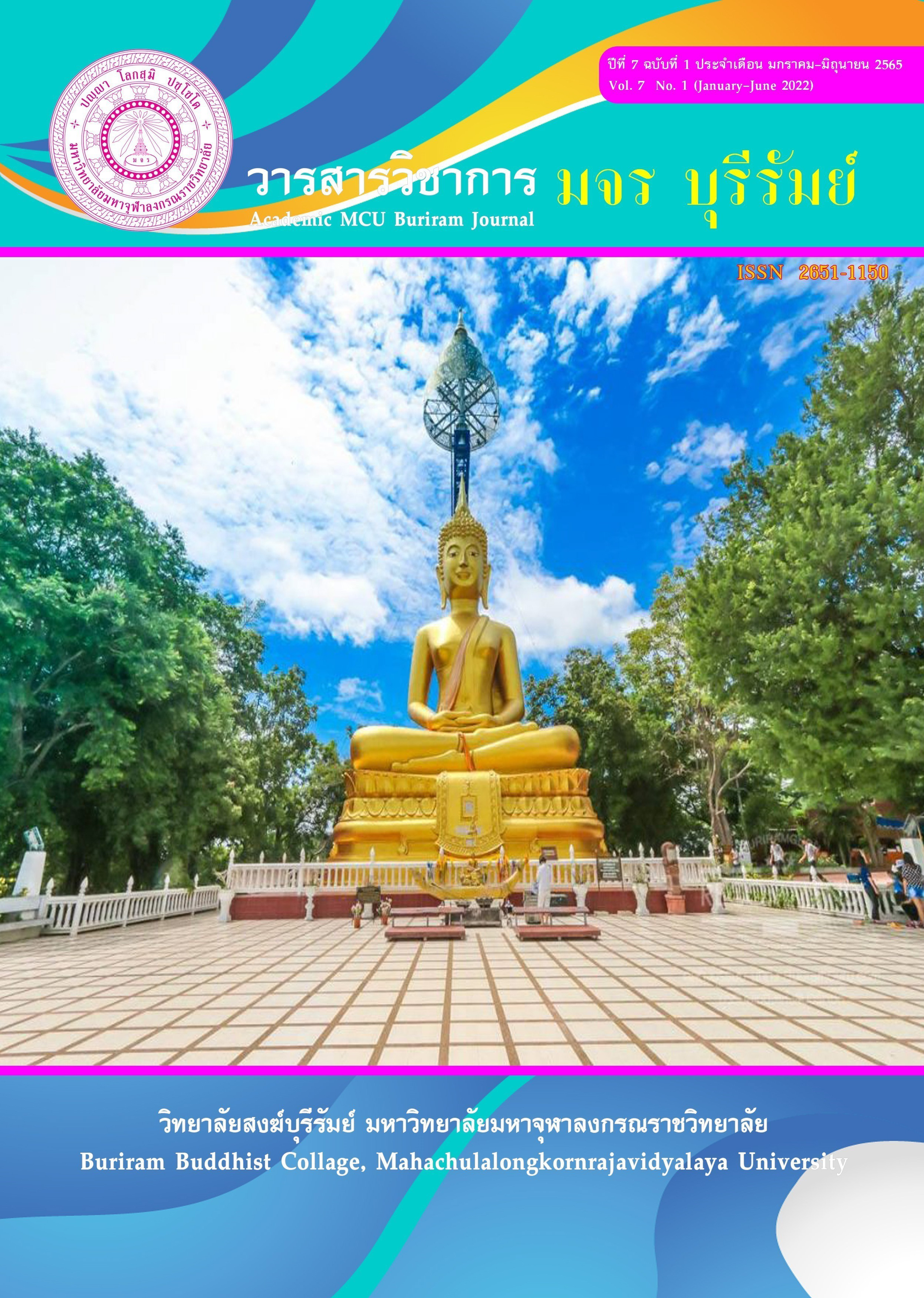The Effect of Online Learning Activities Using Geographic Inquiry Process on Abilities of Analytical Thinking and Geographic Abilities of Secondary 1 Students
Keywords:
Online Geographic Inquiry, Analytical Thinking, Geographic AbilitiesAbstract
The purpose of this research are 1) comparing the abilities of analytical thinking and geographic abilities of secondary 1 students between before and after using online learning activities using geographic inquiry process and 2) comparing the abilities of analytical thinking and geographic abilities of secondary 1 students after receiving online learning using geographic inquiry process with the 70 percent criterion. Samples were 36 secondary 1 of an opportunity expansion schools in Bannoenmaprang School, Phitsanulok Province. They were selected by using simple random sampling. This study was an experimental research. Instruments used were online learning activities using geographic inquiry process lesson plan and analytical thinking ability test and geographic ability test. The statistics used in analyzing the data were percentage, mean, standard deviation, Index of Item Objective Congruence (IOC), Difficulty index, Discriminant Index, Reliability, and t-test.
The research result finds that:
1. The abilities of analytical thinking and geographic abilities of secondary 1 students after organizing online learning activities using geographic inquiry process were higher than those before learning with statistical significance at the level of 0.05
2. The abilities of analytical thinking and geographic abilities of secondary 1 students after organizing online learning activities using geographic inquiry process were higher than the criterion of 70 percent with statistical significance at the level of 0.05.
References
กระทรวงศึกษาธิการ. (2553). พระราชบัญญัติการศึกษาแห่งชาติ พ.ศ. 2542 แก้ไขเพิ่มเติม (ฉบับที่2) พ.ศ. 2545 และ (ฉบับที่3) พ.ศ. 2553. กรุงเทพฯ: องค์การรับส่งสินค้าและพัสดุภัณฑ์.
กระมล ทองธรรมชาติ และคณะ. (2553). หนังสือเรียนรายวิชาพื้นฐาน สังคมศึกษา ศาสนาและวัฒนธรรม ม.2. กรุงเทพฯ: ไทยร่มเกล้า.
กมลรัตน์ หล้าสุวงษ์. (2524). จิตวิทยาการศึกษา ฉบับปรับปรุง. พิมพ์ครั้งที่ 2. กรุงเทพฯ: คณะศึกษาศาสตร์ มหาวิทยาลัยศรีนครินทรวิโรฒ.
คณะทำงานประชาสัมพันธ์ แนะแนวการศึกษาและการจัดการความรู้ สาขาวิชาวิทยาการจัดการ. (2558). แนวทางในการจัดการเรียนการสอนโดยการใช้ e-Learning.
จินตวีร์ (มั่นสกุล) คล้ายสังข์. (2555). อีเลร์นนิงคอร์สแวร์: แนวคิดสู่การปฏิบัติ สำหรับการเรียนการสอนอีเลิร์นนิ่งในทุกระดับ. กรุงเทพฯ: สำนักพิมพ์แห่งจุฬาลงกรณ์มหาวิทยาลัย.
ใจทิพย์ ณ สงขลา. (2550). E-Instructional Design วิธีวิทยาการออกแบบการเรียนการสอนอิเล็กทรอนิกส์ (1 ed.). กรุงเทพฯ: ศูนย์ตำราและเอกสารทางวิชาการ คณะครุศาสตร์ จุฬาลงกรณ์มหาวิทยาลัย.
ชัยยงค์ พรหมวงศ์. (2558). การใช้เทคโนโลยีด้านบริหารและจัดการอาชีวศึกษาในพุทธ ศตวรรษที่ 26 ตามแนวทางThailand 4.0.
ทิศนา แขมมณี. (2557). ศาสตร์การสอน: องค์ความรู้เพื่อการจัดกระบวนการเรียนรู้ที่มีประสิทธิภาพ (18 ed.). กรุงเทพฯ: สำนักพิมพ์แห่งจุฬาลงกรณ์มหาวิทยาลัย.
Downloads
Published
How to Cite
Issue
Section
License
Copyright (c) 2022 Academic MCU Buriram Journal

This work is licensed under a Creative Commons Attribution-NonCommercial-NoDerivatives 4.0 International License.
ทัศนะและความคิดเห็นที่ปรากฏในบทความวารสารฉบับนี้ถือเป็นความรับผิดชอบของผู้เขียนบทความนั้น ไม่ถือเป็นทัศนะและความรับผิดชอบของบรรณาธิการ





